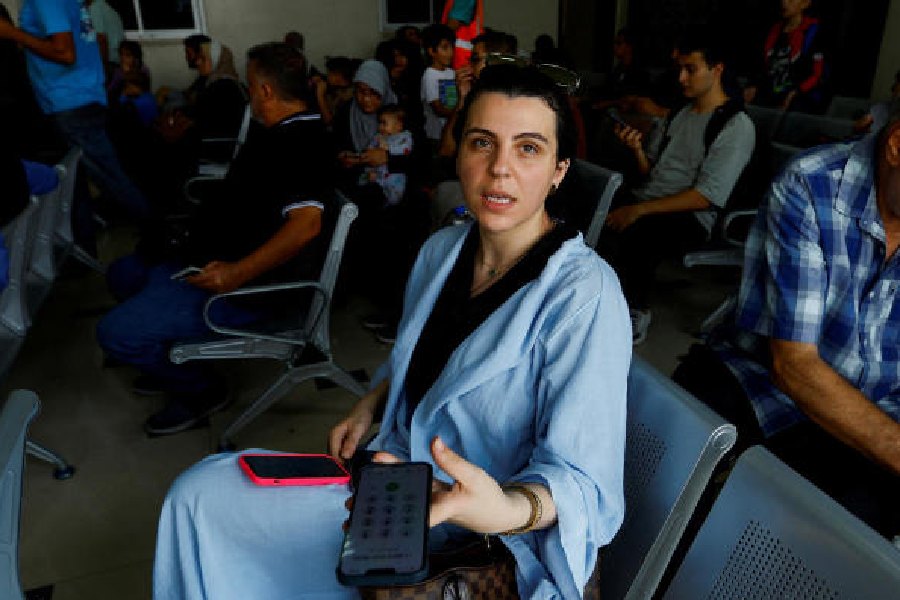It took four failed attempts before Suzan Beseiso was able to get through the Rafah crossing into Egypt and escape the bombardment of the Gaza Strip.
On each occasion, the 31-year-old Palestinian American, one of several hundred foreign passport holders allowed to leave the enclave since last week, said she faced acute danger.
“Every single time we went to the border, we got bombed and freaked out,” she said on Sunday during an interview in Cairo, where she arrived after crossing the Sinai Peninsula by road. “Bombs are going left and right.”
After Israel imposed a total siege on Gaza in retaliation for an October 7 incursion by Hamas, the Rafah crossing — the only crossing out of Gaza that does not border Israel — remained out of operation for nearly two weeks amid diplomatic wrangling over conditions for allowing aid to enter and evacuees to leave.
Since then a trickle of relief has been trucked into Gaza and some evacuees have left, though the arrangement is fragile and was suspended on Saturday before resuming on Monday. The month-long war has caused a deepening humanitarian crisis in Gaza as Israel’s military campaign has intensified, with many of the territory’s 2.3 million inhabitants repeatedly displaced as they struggle to find shelter and safety.
Beseiso, who has spent about half her life in Gaza and half in the U.S., said she had crammed with relatives into a single room in a stranger’s house, ran short of food and water, and endured sleepless nights during air strikes.
“It’s just a horror movie that keeps putting on repeat,” she said. “No sleep. No food. No water. You keep evacuating from one place to another.”
On one occasion, she was in a resting-area next to the border with her sister and cousin and panicked when she heard a strike fall near where her mother, father, and nephew were waiting outside.
They narrowly escaped, she said, but the Palestinians received an order to shut the border and the family retreated in a terrifying taxi ride back into Gaza. “On our way to the house, gunships were bombing the beach area, and the bombs were just flying on top of our heads, left and right, and the airplanes were just bombing as well.”
Eventually, the first foreigners and some Palestinians requiring urgent medical treatment were allowed to start leaving Gaza on November 1, after negotiations involving the US, Israel, Qatar, and Egypt.
Egypt has strongly resisted suggestions of any mass displacement from Gaza into Sinai, partly due to Arab fears of a new wave of permanent displacement.











